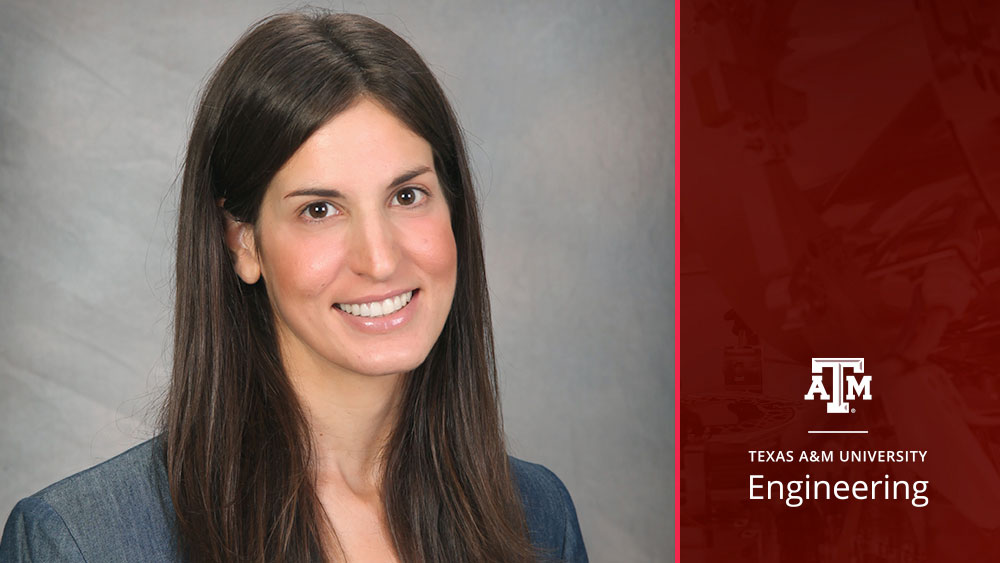
Dr. Theodora Chaspari, assistant professor in the Department of Computer Science and Engineering at Texas A&M University, received the Montague-Center for Teaching Excellence (CTE) Scholars Award in recognition of her passion for teaching undergraduate students.
“I am very honored to receive the Montague Teaching Award,” Chaspari said. “During the ceremony, it was also very exciting to learn about the work of assistant professors from other colleges who received the award. This high-quality work and dedication to student learning from my peers makes me proud to be part of Texas A&M.”
Every year, the award is given to only one tenure-track assistant professor from each college. In addition to receiving the Montague-CTE Scholars Award, each recipient also receives a $6,500 grant to develop new, innovative teaching methods. Since it’s initiation in 1991, the award has been granted to 289 faculty members.
Chaspari was inspired to pursue a career teaching in academia by her own academic mentors and advisors, whose expertise spanned across many different domains. She said that some of the most rewarding aspects of her position are conveying knowledge about computing, interacting with her students and witnessing their success.
“I believe that through this bi-directional and open exchange of information, students can better understand the material of the class, and we can also better adapt the class material as instructors,” said Chaspari.
She plans to use the funds from the award to develop a research-inspired interdisciplinary university education program to shape future leaders in artificial intelligence (AI), data science and machine learning, which also includes teaching them the social responsibility that comes with practicing computer science in an ethical and fair manner.
“It has become increasingly evident that solving authentic problems in the world now requires cross-domain conversations and collaboration between engineering, computing and the humanities,” Chaspari said. “As learning about AI has become one of the most discussed topics in the field of education, it is equally important to follow an education agenda that conveys the ethics and the social responsibility that comes with designing and deploying AI systems.”